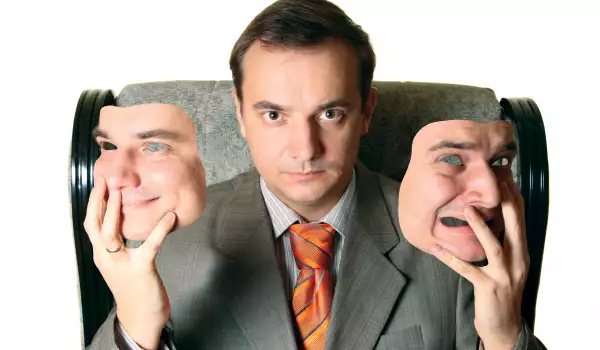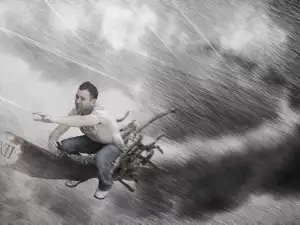The social masks the majority of people wear without even realizing it conceal the emotional trauma they usually experience in their early childhood. According to the expert Liz Burbo, there are 5 main traumas corresponding to 5 social masks with which we try to hide our pain from others.
Emotional trauma Rejection - social mask Runner
These individuals have been traumatized by parents, classmates and teachers. They have often been rejected, insulted and ridiculed but did not express their emotions in the given situation, instead they bottled them up inside. This has led to their specific emotional trauma.
Every life situation which in some way leads them to think that they'll somehow be rejected brings out their social mask of the person running away - running from the problem by refusing to talk about it or express their feelings through their actions.

Emotionally rejected individuals create an imaginary world as a defense mechanism against reality. They don't like being the center of attention, they rarely talk and prefer to be invisible and isolated from others.
Emotional trauma Abandonment - social mask Dependent
It's not always just abandoned children that suffer from this type of trauma but often ones whose parents spend more time focusing on their career also develop the trauma of abandonment.
Those suffering from this trauma grow up believing that they can't achieve anything on their own and that they need the support of another person no matter what, thereby developing the social mask of the dependent person.
These types of people behave like little kids - they do everything possible to attract others' attention, even pretending to be sick. They are afraid of being alone and strive to always be surrounded by people they can lean on.
Emotional trauma Ridicule - social mask Masochist
This trauma appears in situations where the person is hurt, insulted and humiliated but they tried not to show it. In the future they do everything they can to prevent feeling ridiculed again and put on the mask of the masochist - a person who finds pleasure in suffering.
People with this trauma do not understand and value their own needs, instead they focus entirely on others'. Usually they are highly sensitive and are vexed by even the most insignificant thing. The masochist tends to get buried in their work and feels responsible for the happiness of others.

Emotional trauma Betrayal - social mask Controller
Betrayed persons very often develop an irrational fear of betrayal, leading them to be incredibly mistrustful, suspicious and authoritarian. As a defense mechanism they develop the social mask of the controller - someone who tries to anticipate every consequence in the future.
The controller organizes their life to the smallest details and tries to take control over everything to avoid the suffering from yet another betrayal. These types of persons are extremely hard-working and responsible.
Emotional trauma Injustice - social mask Expressionless
When a person is unappreciated according to their real worth, they suffer from the emotional trauma of injustice. To protect themselves from this type of suffering they use the social mask of the expressionless individual - he who feels no emotion, is cold and estranged from others.
Expressionless people seek perfection and think that no one can meet their criteria. They are very demanding of themselves as well. They rarely let themselves get comfortable with someone because they feel guilty if they do.









